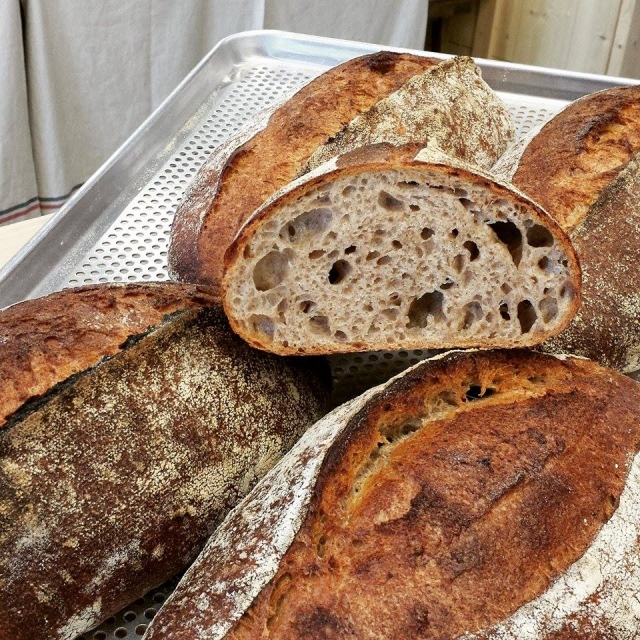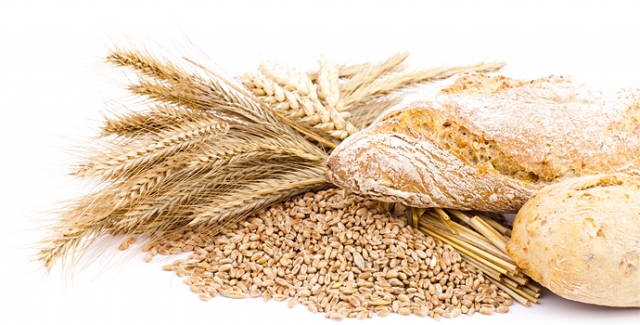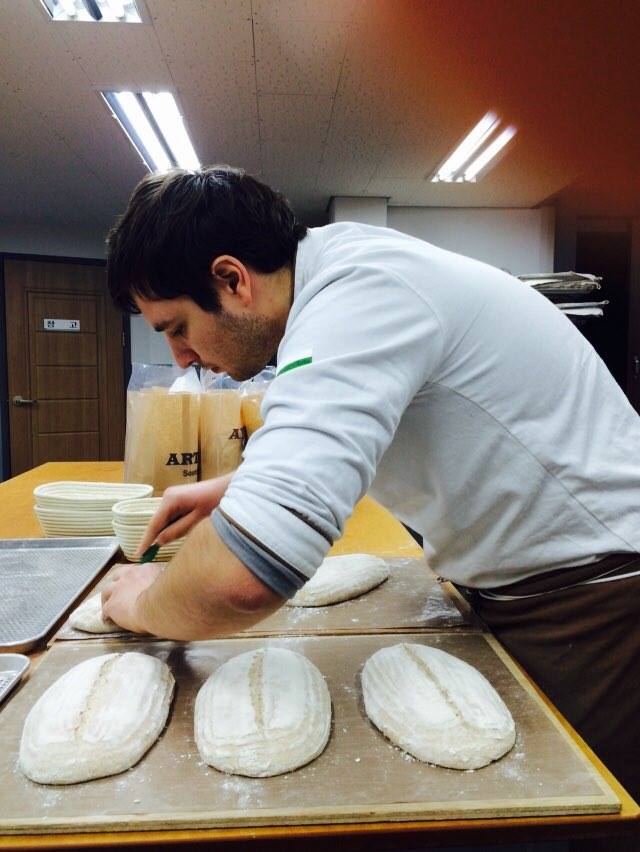Ivan Petkov
Bread - we are so used to it that we hardly notice it. Civilization has abolished the spell of bread that induced our ancestors to respect and worship it, to put it at the centre of their most important spiritual rituals as the crown of their work, as an artefact that brings the daily routine and eternity together. The value of bread as a wholesome and healthy food has gone, along with the attitude to it. Industrial bread production leads to reconsidering the role of bread and to perceiving it as a product that can be excluded from our daily diet. The gluten-free food industry has inflicted a serious blow on cereals, putting modern man in a position to be afraid of bread, often without even knowing why.

Can bread be a revolution and technological innovation, almost commensurate with its historical role in human evolution, a revolution in the healthy diet that can restore its forgotten importance as well as its value as a basic and healthy food? Young baker Presian Petrov, who was apprenticed to famous world breadmasters, will answer this question. He will explain the merits of bread, whether gluten is so dangerous and tell us how to make true, natural, wholesome and healthy bread. To this, we will add the viewpoint of modern science that will tell us why naturally prepared bread has such a great merit. Through the eyes of the curator of the National Ethnological Museum, PhD. Iglika Mishkova, we will see how traditions and Orthodox Christianity have preserved the main characteristics of bread through faith, traditional morality and beliefs. PhD. Mishkova gave us an authentic recipe for sourdough, a secret that was strictly kept in the past. We will look at bread through the eyes of our ancestors and find out how it was discovered and why it has become the most popular food of all time, an achievement of human civilization. This journey will show how the advanced technology of nature involves innovative technologies to create one of the oldest human creations, and how to make healthy bread.
Gluten, gluten, gluten ...

There has recently been more and more talk about gluten as a harmful ingredient, and gluten-free products and diets are widely recommended. Gluten (glue in Latin) is a protein mixture contained in cereals. As its name indicates, it gives the sticky structure of dough while it is being kneaded to make bread. The gluten protein contained in wheat is between 21% and 30%. The varieties, in which its content is lower than 18%, do not make good dough under natural conditions and they are defined as fodder. Rye, barley and oats and their derivatives as well as flour, starch, semolina, pasta, cereals, vegetable proteins and others contain gluten as well.
The gluten-free food industry takes advantage of the fact that a small percentage of people have intolerance to this ingredient, beginning a marketing war against cereals. Gluten intolerance is among the most common allergies and its frequency is different in various regions of the world. In Germany, for example, 0.3% of the population suffers from gluten intolerance, while in Finland this group of people reaches 2.4%. The reasons for these differences are not yet clear.
Between 0.6% and 1.0% of the population develop an autoimmune disease that is called celiac disease. In the majority of cases, there is genetic predisposition to the disease. The disease can occur in adulthood when it is called gluten enteropathy. The disease occurs 1.5-2 times more often in women than in men. Because of the reduced activity of the enzymes in the gut, their ability to intake nutrients is impaired. The symptoms are varied and they may include general weakness, fatigue and inability to concentrate as well as haematological, dental and muscular diseases, disorders of protein metabolism, weakened immune system and more.
The problem with gluten is exacerbated by its use as a food additive in various foods, including in meat substitutes for vegetarians.
Although it is the cause for a relatively rare disease, gluten has gained immense popularity and often food products are advertised as gluten-free. Due to the relatively wide range of symptoms, many people tend to blame the weakened immune system or eating disorders on gluten. Allegedly, the number of people who have developed gluten intolerance has increased in recent years but there are no official medical statistics.
A number of studies have focused on the relationship between the improvement of gluten intolerance and the use of long fermented sourdough bread. A study of the American Society for Microbiology shows that a bread technology that uses "lactobacilli (from yeast), natural flours and a long fermentation time is a novel tool for decreasing the level of gluten intolerance in humans." The title of another study conducted in Ireland by an international team of scientists is indicative of its results: Sourdough in gluten-free bread making: An ancient technology to solve a novel issue?
Baker Presian
